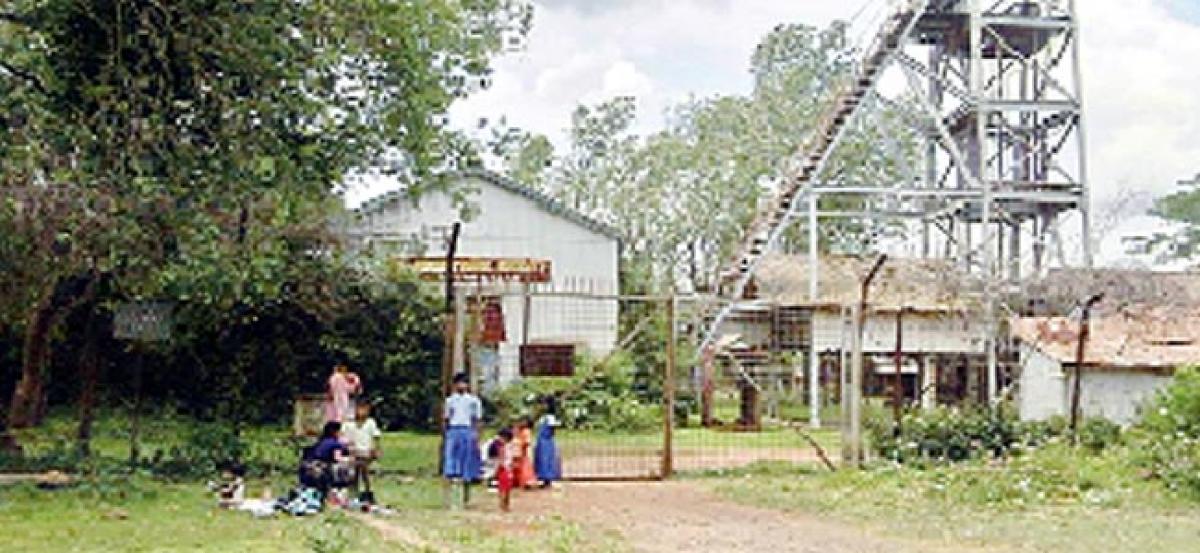Live
- Nehru’s services unforgettable : Veerlapalli
- ROB ready by March-end
- 30.1-9-49-10 – Anshul Kamboj picks up all 10 wickets in Haryana vs Kerala Ranji Trophy match
- South Korean FM Cho, Blinken hold talks on margins of APEC summit in Peru
- India’s insurance sector growth surpasses China, Thailand: McKinsey
- CLOSE-IN: Indian cricketers from Paupers to Princelings
- Delhi-NCR's air quality remains hazardous for residents
- South Korea, US, Japan to announce establishment of trilateral secretariat this week
- North Korean leader Kim orders mass production of suicide attack drones: KCNA
- Calcutta HC to hear next week plea for CBI probe into death of Jhargram Hospital doc
Just In

The Union Mining Ministry is planning to revive a cluster of colonial-era gold mines, shut for 16 years, with an estimated $2.1 billion worth of deposits left.
Centre estimates $2-bn reserves untapped in Kolar gold fields
New Delhi : The Union Mining Ministry is planning to revive a cluster of colonial-era gold mines, shut for 16 years, with an estimated $2.1 billion worth of deposits left. India is the world's second largest importer of the yellow metal and exploring ways to cut its trade deficit, according to officials.
State-run Mineral Exploration Corp Ltd has already started exploring the reserves at Kolar Gold Fields, in the southern state of Karnataka, to get a better estimate of the deposits, according to three government officials and a briefing document prepared by the federal mines ministry that was seen by Reuters.
Balvinder Kumar, the top civil servant at the federal mines ministry, said: "Getting the Kolar mines going would help the government bring down its import bill."
Initial Mineral Exploration Corp estimates show reserves worth $1.17 billion in the mines, according to the briefing document. Another $880.28 million in gold-bearing deposits is estimated left over in residual dumps from previous mining operations.
"These mines have huge potential," Kumar said, adding that the initial estimates were conservative. "We feel there is more. The whole belt has a lot of potential in terms of untapped gold."
The document does not give an estimate of how much it would cost to restart the mines.
The ministry has also appointed investment bank SBI Capital to assess the finances of the defunct state-run Bharat Gold Mines Ltd, which controls the mines, and the dues the company owes to workers and the authorities, said the officials, who are involved in the process.
The Kolar fields, located about 65 km (40 miles) northeast of the technology hub of Bengaluru, are among the world's deepest gold mines.
Mining was started there by John Taylor and Sons, a British engineering firm, in 1880, when Britain ruled India. The area, now mostly a ghost town, still has the colonial-era clubs, houses and even a golf course that were built for its executives.
India took over Kolar soon after independence in 1947, but struggled to profitably mine the reserves. In 2001, Bharat Gold was forced to cease operations due to mounting losses, the result of a large, unproductive workforce and dated, economically unviable methods of mining.
India, the world's biggest gold importer behind China, spends more than $30 billion a year buying gold from abroad, making the metal its second-biggest import item after crude oil.
India imports 900 tonnes to 1,000 tonnes per year, but local gold output is miniscule, at 2 tonnes to 3 tonnes per year.
Over the next 15 years, successive federal and state governments have tried to revive the mines or to sell them off, often disagreeing on the course of action and taking their disputes to the courts.
The two have to agree because the federal government has the "surface right" over the mines, but Karnataka is responsible for granting the licence to operate there. In 2013, Karnataka let Bharat Gold's mining lease expire.

© 2024 Hyderabad Media House Limited/The Hans India. All rights reserved. Powered by hocalwire.com







